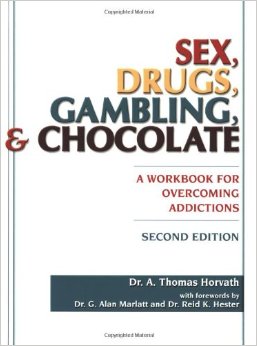New Review of SDG&C is Reminder of its Greatness
by Thaddeus Camlin, Psy.D.

Dr. Horvath’s Book Making its Way into the Mainstream
Like many great works SDG&C, although written decades ago, reads like a book that could have been written today and is, perhaps, more relevant now than ever. It is becoming increasingly difficult to deny that a paradigm shift in treating addictive problems is underway and gaining momentum. Medication assisted treatment, once as dirty a phrase as moderate drinking in recovery circles, is now approaching mainstream recognition as the frontline defense in combating opioid problems. Even moderation, still considered lunacy by many, is increasingly recognized in research as a viable outcome for addiction treatment.
Risks of a Thought Leader
Self-empowering concepts that are now experiencing widespread acceptance (e.g. multiple pathways, moderation, self-empowerment, coping with craving, universal change process, etc.), were openly discussed and advocated for in SDG&C in an era where the espousal of such ideas risked serious damage to one’s professional reputation and career. Thanks to the bold work of Dr. Horvath, who was and still is willing to take personal risks to advance the field and better the lives of others, addiction treatment is improving. No doubt much work remains. However, it is also important to recognize that, while the pace of progress can most certainly be frustrating, and the cost of progress can often be severe, the rewards are often worth the effort.
The gaining momentum in the advancement of addiction treatment owes much to the work of Dr. Horvath. The enduring relevance of Dr. Horvath’s forward-thinking workbook is a striking example of just how important his efforts, and the efforts of his like-minded colleagues, have been in laying the foundation for the paradigm shift that is now underway.
